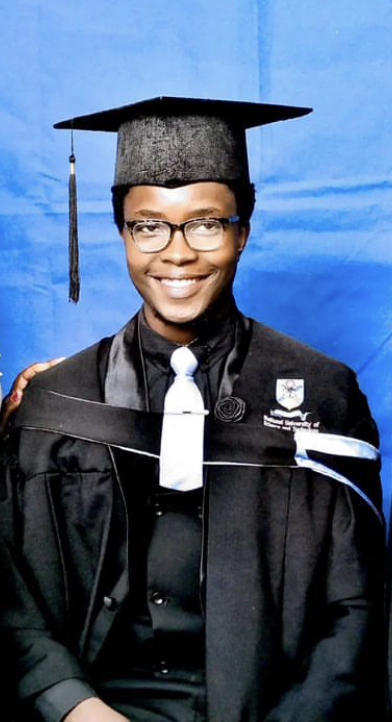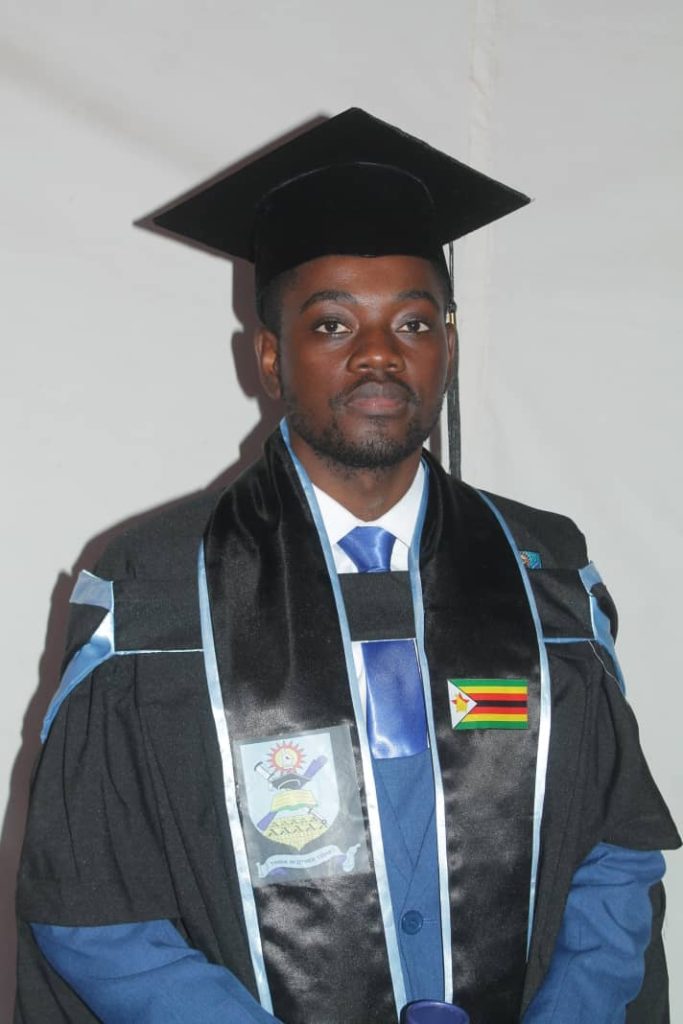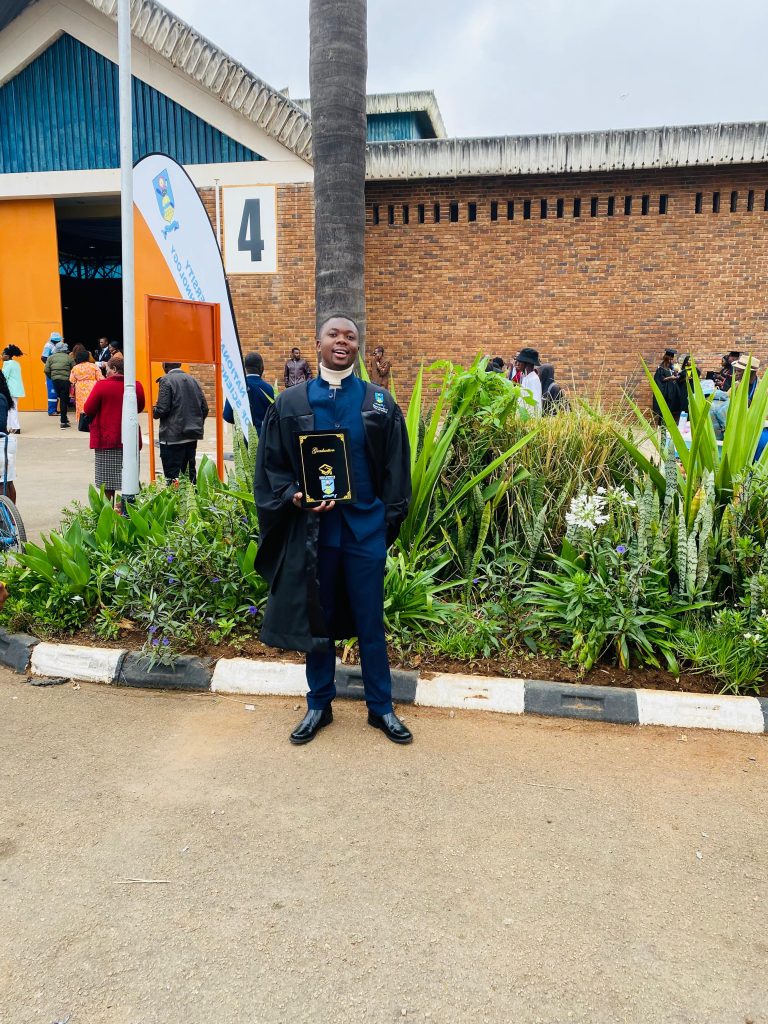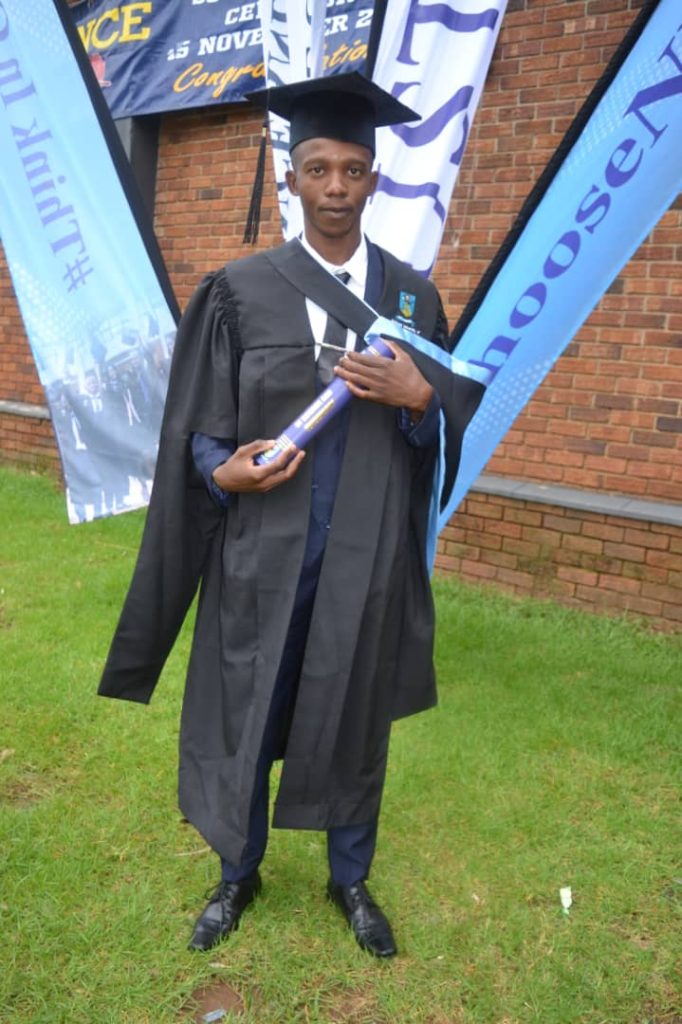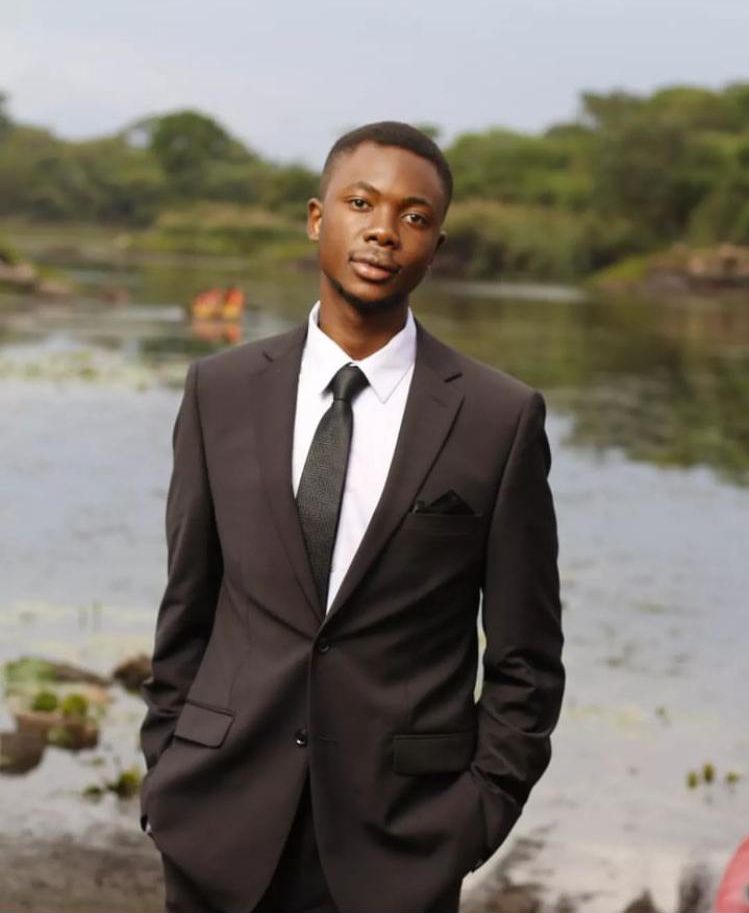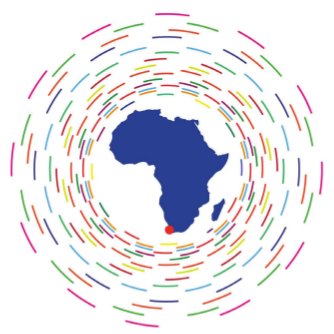The last week saw the graduation of four ZAS members from the National University of Science and Technology! Namely Praise Nesvinga, Munashe Macdonald Manyevere, Mduduzi Cube, and Mkhokheli Nkomo respectively.
Praise graduated with a Bachelor of Science Honours degree in Applied Mathematics, with a dissertation titled. “A Study of Newton’s Second Law Under the Hypothesis of a Locally Expanding Spacetime: A Case study of the Flyby Anomaly“: We investigate the implications of modifying Newton’s Second Law within a framework that considers a local expansion of spacetime, deviating from the traditional assumption of a static, non-expanding local environment. It explored theoretical adjustments to Newtonian mechanics and examined how these changes might affect gravitational interactions and kinematic behaviors in locally expanding regions within the context of Earth Flybys at the perigee. The study aimed to reconcile observed cosmological phenomena at local scales by proposing a model where spacetime expansion has localised effects on physical laws at the perigee during a gravity assist manoeuvre, potentially impacting our understanding of motion and gravitational dynamics in the universe. This project was supervised by Professor G. Nyambuya.
Munashe also graduated with a Bachelor of Science Honours degree , in Applied Physics however. His project was titled “An investigation of anomalous rotation of spiral galaxies“: This work investigates the applicability of the Massive Photon Theory (Nyambuya 2014a,b) to the rotational curves of spiral galaxies. We hypothesize that the proposed ”dark field”generating the photon’s mass within this theory could potentially explain the observed rotational anomaly and, consequently, represent the longsought dark matter. Our theoretical framework suggests a specific range for the photon’s mass (10−37kg − 10−38kg), aligning with the predictions of the Massive Photon Theory. Based on these findings, we propose the intriguing possibility that dark matter may consist of massive photons. Further research and experimental verification are crucial to validate this hypothesis and deepen our understanding of the universe’s composition. This project was also supervised by Professor G. Nyambuya.
Next we have Mduduzi who graduated with a Masters degree in Geophysics. His project was titled “Investigation of transient luminous events over Zimbabwe“: The study was conducted to capture images of Lightning Phenomena using a ground-based camera and analyzing its characteristics. The findings revealed a high level of lightning activity over Zimbabwe, which was extremely brief, lasting only 2 milliseconds, and was often associated with cloud-to-cloud lightning discharges. The study also found significant variability in lightning flash rates across different months and years, with no clear correlation with rainfall patterns. The spatial distribution of lightning activity was highest in the central and eastern regions of Zimbabwe. Spectral analysis revealed that lightning flashes primarily consist of nitrogen and oxygen, with nitrogen dominating the emissions. These findings contribute significantly to our understanding of lightning and lightning patterns in Zimbabwe, highlighting the complexity of this phenomena and the need for continued research. The achievement of the research objectives has provided valuable insights that can inform future research and improve weather forecasting and hazard mitigation strategies in the region. He was supervised by Mr. Mashingaidze
Last but not least, we have Mkhokeli, he graduated with a Masters degree in Applied Physics with a thesis titled “Design of an Arduino based home appliance control system“: I designed an arduino circuit to control home appliances (lights, fridge, fan etc) based on commands received from mobile device via SMSs. I also incorporated LM35 temp sensor to measure ambient temperature. I used arduino IDE software to write code using C++ that interfaces with the circuit components and enables control of the system using a mobile device. I also came up with a prototype. Here the aim was to design and implement an sms based home appliance system using Arduino for convenient remote control and monitoring. He was supervised by Mr N. Sibanda.
We as ZAS are very proud of our newest graduates, and we hope to see great things from them in their respective future pursuits!


